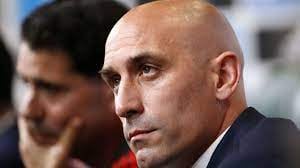Monday, September 11, 2023. Annette’s News Roundup.
I think the Roundup makes people feel not so alone.
To read an article excerpted in this Roundup, click on its blue title. Each “blue” article is hyperlinked so you can read the whole article.
Please feel free to share.
Invite at least one other person to subscribe today! buttondown.email/AnnettesNewsRoundup
________________________________
Today is the 22nd anniversary. 9/11.
September 11 Anniversary 2023
When:
Sept. 11, 2023
Where:
Multiple Locations, USA
Operational date(s):
Sept. 11, 2023
The 22nd anniversary of the 9/11 terror attacks is marked with solemn ceremonies across the US.
The United States and countries abroad will soon pause again to remember the tragic events of September 11.
The 22nd anniversary commemorations of the terror attacks that killed almost 3000 Americans will occur in New York City, Virginia, and Shanksville, Pennsylvania.



Beautiful job by the New York Giants, MetLife, Queen Latifah and the NYPD choir honoring those lost on 9/11.#NeverForget pic.twitter.com/oL3QpCskEs
— Damned Yankee 🇺🇸 (@DamnedYankee3) September 11, 2023
________________________________
Joe is always busy.
Historian Heather Cox Richardson describes the global side of President Biden’s political vision as revealed in the agreements he brought to fruition at the G20.
She also describes how Elon Musk’s recent blockage of internet connectivity by Ukraine by his Starlink satellite makes clear the dangers of privatizations of key functions of government, and why Biden’s vision is critical for our national security.
September 9, Letters from an American.

G20 Summit: African Union becomes permanent member of G20.
At the Group of 20 (G20) meeting today in New Delhi, leaders announced plans for a new rail and shipping corridor that will connect India and Europe through the Middle East. This ambitious plan is part of Biden’s larger vision of creating high-quality infrastructure projects and the development of economic corridors that together should promote sustainable growth in low- and middle-income countries. The theory is that enhanced global trade should reduce economic gaps among countries, expand access to electricity and telecommunication, and promote clean energy.
They also agreed to continue developing the Lobito Corridor, a rail line linking the port of Lobito, Angola, on Africa’s Atlantic coast, with the city of Kolwezi, Democratic Republic of Congo (DRC), in Africa’s interior mining region. The White House and U.S. allies in this project say they are hoping that an injection of money to build infrastructure will support a transparent and developed critical minerals sector that will advance global supply chains for those minerals while benefiting local economies in Angola, Zambia, and DRC.
Anyone with even a passing knowledge of the history of Africa has reason to be skeptical of this plan, although Japan and India don’t carry the same colonial baggage European countries do in Africa. G20 leaders are trying to combat the legacy of colonialism by expanding the table of leadership to those countries previously excluded. In New Delhi the G20 admitted the African Union as a permanent member. The African Union was formed in 2001, and its 55 member states cover more than 12 million square miles and have a total population of more than 1.3 billion people. The G20 is now effectively the Group of 21.
Funding for the projects will come through the Partnership for Global Infrastructure and Investment (PGI), the Group of Seven’s answer to China’s Belt and Road Initiative. The G7 is a political bloc of advanced economies that share values of liberal democracy.
In a joint statement, the leaders of India, Brazil, South Africa, and the United States said they met on the margins of the G20 “to reaffirm our shared commitment to the G20 as the premier forum for international economic cooperation to deliver solutions for our shared world.” Aside from the U.S., the three countries making that statement are all members of BRICS, the economic bloc that includes China.
Their statement, along with the fact that each of those countries will hold the presidency of the G20 for the next four years, indicates G20 pressure on China. So does the fact that the president of the World Bank, nominated by Biden, is former MasterCard chief executive officer Ajay Banga, an American citizen who was born in India. Banga is both familiar with financial services and deeply concerned about inclusive and sustainable growth.
The economic news coming out of New Delhi shows the global side of Biden’s political vision. Led by the U.S., the G20’s call for massive investment in developing the infrastructure and economies of other countries echoes the post–World War II Economic Recovery Act of 1948, better known as the Marshall Plan. Under this plan, the U.S. spent more than $13 billion to help Europe rebuild its infrastructure and economy. This rebuilding stabilized European governments and provided the U.S. with reliable trading partners.
“One Earth, One Family, One Future,” Biden told a meeting of the PGI. He called for “building sustainable, resilient infrastructure; making quality infrastructure investments; and creating a better future [that] represents greater opportunity, dignity, and prosperity for everyone.”
The idea that public investment in infrastructure serves democratic goals fell out of favor in the U.S. in the 1980s. Leaders insisted that private investment reacted more efficiently to market forces whereas government investment both distorted markets and tied up money that private investment could use more effectively. In fact, the dramatic scaling back of public investment since then has not led to more efficient development so much as it has led to crumbling infrastructure and its exploitation by private individuals.
In late July the New York Times noted that since 2019, billionaire businessman Elon Musk has steadily taken over the field of satellite internet, infrastructure that is hugely important for national security. In just four years Musk has launched into space more than 4,500 satellites—more than 50% of all active satellites. This means that Musk’s Starlink is often the only way for people in places hit by disasters or in war zones to communicate.
On Thursday, excerpts from a forthcoming biography of Elon Musk by historian Walter Isaacson revealed that Musk “secretly told his engineers to turn off [Starlink] coverage within 100 kilometers of the Crimean coast” after learning that the Ukrainian military was sending six small drone submarines packed with explosives at the Russian naval fleet based in Crimea. After talking to Russian leaders, who said they would respond with nuclear weapons—later events suggest this was a bluff—Musk shut off Starlink, the drone submarines lost the connectivity they needed to find their targets, and the weapons simply washed ashore.
According to Isaacson, Ukrainian officials begged Musk to turn the coverage back on, but he refused, saying that Ukraine “is now going too far and inviting strategic defeat.” He told U.S. and Russian officials that he wanted Starlink to be used only for defense. Then he offered a “peace plan” that required Ukraine to give up territory to Russia and reject plans to join the North Atlantic Treaty Organization (NATO). Later, he again disabled Starlink coverage in the midst of a Ukrainian advance.
Isaacson portrays Musk as frustrated by being dragged into a war. “Starlink was not meant to be involved in wars,” Musk told Isaacson. “It was so people can watch Netflix and chill and get online for school and do good peaceful things, not drone strikes.” Since the story broke, Musk has defended his unwillingness to be in the middle of a war.
But Mykhailo Podolyak, a top advisor to Ukraine president Volodymyr Zelensky, pointed out on Musk’s own social media platform X, formerly known as Twitter, that the same Russian fleet Musk protected went on to fire missiles at Ukrainian cities, killing civilians, including children. Russia is also attacking Ukraine’s infrastructure for exporting grain, which threatens the price and availability of food in Africa.
The privatization of the functions of government in the U.S. has given a single man the power to affect global affairs, working, in this case, against the stated objectives of our own government. Republican leaders eager to push that privatization have made their case by turning voters against taxes, although the tax cuts put in place since 1981 overwhelmingly benefited the wealthy and corporations, permitting a few individuals to amass fortunes: Forbes, for example, estimates Musk’s net worth at $251.3 billion.
On Friday the Internal Revenue Service announced that increased federal funding under the Inflation Reduction Act and the help of artificial intelligence will enable a new push to go after 1,600 millionaires who owe at least $250,000 and 75 large businesses with assets of about $10 billion apiece that owe hundreds of millions of dollars in taxes.
Senator Ron Wyden (D-OR), chair of the Senate Finance Committee, said the plan “goes to the heart of Democrats’ effort to ensure the wealthiest are paying their fair share.” It also goes to the heart of the idea that billionaires must not be able to impose their will on the rest of us by virtue of their monopolization of key aspects of our infrastructure. Still, Republicans continue to argue for private investment according to market forces. Opposing taxes and the government programs they fund, they have clawed back as much of the new funding for the IRS as they have been able, and they continue to call for more cuts.
This week, as a fight over funding the government by the end of the month looms, the implications of the parties’ different visions of government could not be clearer.
________________________________
Remember these things happened 👇 whenever you hear how popular Trump is.
Touch 👇 to hear the crowd in Iowa.
Donald Trump booed loudly by the crowd while entering a college football stadium in Iowa. pic.twitter.com/5k0d8w4HP2
— Republicans against Trump (@RpsAgainstTrump) September 9, 2023
This 👇 happened in South Dakota on Saturday. Touch to watch.
Watch this clip closely from Saturday's Trump rally. MAGA spinning it as Trump got emotional. Trump NEVER gets emotional. In reality Trump-who will be 78 next year--has a Mitch McConnell moment where he freezes and looks confused. Please Look at his eyes at he stands in silence pic.twitter.com/8wLJzzvtzW
— (((DeanObeidallah))) (@DeanObeidallah) September 9, 2023
________________________________
What further evil can GOP extremists do?
25 million people have been saved. Now the GOP threatens the program.
Republican opposition to abortion threatens global HIV/AIDS program that has saved 25 million lives.

Graves of children who died of AIDS, many from two decades ago, are seen at an orphanage in Nairobi, Kenya on Friday, Sept. 8, 2023.
NAIROBI, Kenya (AP) — The graves at the edge of the orphanage tell a story of despair. The rough planks in the cracked earth are painted with the names of children, most of them dead in the 1990s. That was before the HIV drugs arrived.
Today, the orphanage in Kenya’s capital is a happier, more hopeful place for children with HIV. But a political fight taking place in the United States is threatening the program that helps to keep them and millions of others around the world alive.
The reason for the threat? Abortion.
The AIDS epidemic has killed more than 40 million people since the first recorded cases in 1981, tripling child mortality and carving decades off life expectancy in the hardest-hit areas of Africa, where the cost of treatment put it out of reach. Horrified, then-President George W. Bush and the U.S. Congress two decades ago created what is described as the largest commitment by any nation to combat a single disease.
The program, known as the U.S. President’s Emergency Plan for AIDS Relief, or PEPFAR, partners with nonprofit groups to provide HIV/AIDS medication to millions around the world. It strengthens local and national health care systems, cares for children orphaned by AIDS and provides job training for people at risk.
Now, a few Republican lawmakers are endangering the stability of the program, which officials say has saved 25 million lives in 55 countries from Ukraine to Brazil to Indonesia. That includes the lives of 5.5 million infants born HIV-free.
At the Catholic-run Nairobi orphanage, program manager Paul Mulongo has a message for Washington.
“Let them know that the lives of these children we are taking care of are purely in their hands,” Mulongo says.
The issue of abortion has been a sensitive one since PEPFAR’s inception in 2003. But each time the program came up for renewal in Congress, Republicans and Democrats were able to put aside partisan politics to support a program that’s long been seen as the vanguard of global aid.
“Most eras in countries are measured by loss of life in war and famine and pandemic,” said Tom Hart, president of the ONE Campaign, a nonpartisan organization that worked with Bush, a Republican, to create the program. “This era has been measured in lives saved.” The campaign has published a letter from dozens of faith leaders to Congress calling PEPFAR “a story of medical miracles and mercy.”
But the bipartisan support is cracking as the program is set to expire at the end of September. The trouble began in the spring, when the Heritage Foundation, an influential conservative Washington think tank, accused the Biden administration of using PEPFAR “to promote its domestic radical social agenda overseas.”
The group pointed to new State Department language that called for PEPFAR to partner with organizations that advocate for “institutional reforms in law and policy regarding sexual, reproductive and economic rights of women.” Conservatives argued that’s code for trying to integrate abortion with HIV/AIDS prevention, a claim the administration has denied.
In language echoing the early, harsh years of the epidemic, Heritage called HIV/AIDS a “lifestyle disease” that should be suppressed by “education, moral suasion and legal sanctions.” It recommended halving U.S. funding for PEPFAR, saying poor countries should bear more of the costs.
Shortly after that, U.S. Rep. Chris Smith, a longtime supporter of PEPFAR who wrote the bill reauthorizing it in 2018, said he would not move forward with reauthorization this time unless it barred nongovernmental organizations that used any funding to provide or promote abortion services. He said he came to this decision after having extensive conversations with stakeholders involved.
And the threat from the New Jersey Republican comes with weight: He chairs the U.S. House Foreign Affairs subcommittee with jurisdiction over the program’s funding.
Because that proposal faces stiff opposition from congressional Democrats, Smith, with support from prominent anti-abortion groups, wants to cut PEPFAR’s usual five-year funding to one year if that ban is not included. He said that way the program would remain funded at its highest level — $6.7 billion — while allowing lawmakers to annually to revisit contracts with partners they believe may support or provide abortion services.
The proposal would also include a measure that requires at least 10% of funds to be directed to NGOs like the Nairobi orphanage, which targets orphans and vulnerable children affected by HIV/AIDS.
“It’s a false narrative that says that you can’t do (the program) year by year as we try to protect the unborn child,” Smith told The Associated Press.
But supporters of the program say that under existing U.S. law, partners are already prohibited from using its funding for abortion services. The head of PEPFAR, John Nkengasong, told the AP he knew of no instance of the program’s money going directly or indirectly to fund abortion services.
He warned that any instability in the flow of U.S. funding for PEPFAR could have dangerous implications for health globally, including in the United States. The key to controlling AIDS, he said, is the assurance that infected people have a pill to take each day.
Without that, the virus could come back, ”and about 20 million lives might be lost in the coming years,” he said. “The fragile gains that we’ve achieved will be lost.”
In Africa, many PEPFAR partners and recipients in largely conservative countries don’t support abortion either because of religious beliefs. But the idea that the program reliant on the steady supply of HIV drugs could be subject to political winds is a cause for alarm.
“If PEPFAR goes, who is going to meet that cost?” asked Josephine Kaleebi, who leads an organization in Uganda that helped the program’s first-ever recipient of HIV treatment medication.
“We are proud to say that the first recipient is alive,” Kaleebi said.
The group, Reach Out Mbuya Community Health Initiative, was founded by members of Uganda’s Catholic Church, which is against abortion. In the reception area, portraits of priests line the walls.
But Reach Out helps anyone who walks in needing HIV drugs, Kaleebi said. About 6,000 people are served, many of them “the extremely most vulnerable” from one of the poorest areas of the capital, Kampala.
Mark Dybul, who helped create and lead PEPFAR under Bush, warned that weakening PEPFAR would also hurt the diplomatic goodwill the U.S. has created in developing regions.
“It’s no secret that we are in a geopolitical struggle for influence in Africa with Russia and China,” he said. “And our biggest influence in many ways, visible and most impactful, is PEPFAR.” A spokesperson for former president Bush declined comment.
In neighboring Kenya, Bernard Mwololo believes he is alive because of the drugs that PEPFAR provides. “Sometimes it’s so crazy when you hear people saying that these HIV drugs should be bought by the local government,” he said. “I am telling you, they can’t manage it.”
The 36-year-old, now an HIV activist, has lived most of his life at the Nairobi orphanage after his parents died of AIDS. He recalled arriving and learning that he could have hope. He was enrolled in a better school, was given a bicycle and ate balanced meals.
The number of children in sub-Saharan Africa newly orphaned by AIDS reached a peak of 1.6 million in 2004, the year that PEPFAR began its rollout of HIV drugs, researchers wrote in a defense of the program published by The Lancet medical journal last month. In 2021, the number of new orphans had dropped to 382,000.
Deaths of infants and young children from AIDS in the region have dropped by 80%.
Now the orphanage is transformed. Children dart around playing soccer or swing in the colorful play area. Some are among the 1.4 million children and adults living with HIV in Kenya, according to UNAIDS. More than 1 million have received free HIV drugs because of PEPFAR.
Stopping PEPFAR would be like committing “global genocide,” said Mulongo, the orphanage program manager.
He recalled how helpless he felt watching children die before HIV drugs were readily available. Almost two decades ago, they would lose at least 30 children a month to AIDS.
Elsewhere in Nairobi, 16-year-old Idah Musimbi is part of a generation that has grown up without the fear that an HIV diagnosis was a likely death sentence.
She displayed the pills that have given her a sense of normalcy. She contracted HIV at birth.
“I don’t think I would live for long if these drugs stopped coming. My grandparents cannot afford to buy food every day, let alone these ARVs,” she said.
Her grandfather David Shitika, a pastor, said he owes the lives of his granddaughter and her mother to PEPFAR. His daughter was diagnosed with HIV in 1995, when many people were dying.
“It was called the slimming killer disease,” he said. “Nobody wanted to live with an infected person, and those who died were wrapped in nylon bags before burial” for fear of infection.
Now he hopes that the Republicans’ threat to PEPFAR will fade, and that his granddaughter will go on to study law and achieve her dream of becoming a judge.
“I want to tell the American people, God bless you,” Shitika said. “I do not know why you decided to help us.” (Associated Press).
________________________________
Progress made in the Spanish Women’s World Cup Team’s Situation.
Rubiales resigns as Spain's soccer president 3 weeks after kissing player at Women's World Cup final.

BARCELONA, Spain (AP) — Luis Rubiales, the suspended head of the Spanish soccer federation, finally folded under immense pressure Sunday and resigned three weeks after his kiss of a player on the lips overshadowed Spain’s first-ever Women’s World Cup title.
Rubiales had been at the center of a controversy that had gone far beyond Spain’s borders and the world of sport after he kissed Jenni Hermoso during the globally televised awards ceremony after Spain beat England to win the title on Aug. 20 in Sydney, Australia. The player said the kiss was without her consent.
“After my swift suspension by FIFA, and the rest of the cases building against me, it is clear that I cannot return to the post,” Rubiales said on Sunday in a message posted on X, formerly known as Twitter.
He had already been temporarily suspended from his job by FIFA for his conduct at the final and, after soccer’s world body opened a disciplinary case, remained defiant and hostile toward those who criticized him.
Then came the most serious threat yet to Rubiales, when Spanish state prosecutors accused him on Friday of sexual assault and coercion after the kiss, two days after Hermoso formally accused him of sexual assault.
Once the most powerful man in Spanish soccer, Rubiales insisted the kiss was consensual and done in a “moment of jubilation.” He said it was like one “I could give one of my daughters.”
Hermoso denied that claim in statements issued by her and her players’ union. The player also said she and her family were pressured by the federation to show her support for Rubiales. Fans, players and politicians publicly disagreed with Rubiales and saw it as a sexist act and the abuse of authority.
“The former president of the Spanish soccer federation has done what he had to do,” Spain’s Secretary of State for Sport Víctor Francos told Spain’s Cadena SER radio. “I think it is what practically the entirety of Spanish society had asked him to do.”
Rubiales said he had also resigned as UEFA vice president due to the reputational danger the scandal could inflict on Spain’s joint bid to host the 2030 men’s World Cup along with Portugal, Morocco and possibly Ukraine.
Rubiales said that he had told interim Spanish federation president Pedro Rocha — who replaced him when Rubiales was suspended on Aug. 26 — of his resignation late Sunday night. The Spanish federation confirmed Rubiales’ resignation in a statement, adding that it would follow its statutes and call an election for a new president.
Also Sunday, Rubiales said “I am going to (resign), I cannot continue my work,” in reply to a question from TV host Piers Morgan on Britain’s TalkTV. Clips from the show were released Sunday at a similar time to Rubiales’ social media post appearing.
“My father, my daughters, I spoke with them ... and some friends very close to me, and they say to me ‘Luis, now you have to focus on your dignity and to continue your life, because if not, probably you are going to damage people you love, and the sport you love,’” Rubiales told Morgan.
“In this situation now, (it is) the thing I have to do.”
Two weeks ago, Rubiales had been expected to step down amid the immediate wave of criticism for his conduct at the final, which included a lewd gesture of grabbing his crotch, with Spain’s Queen Letizia and her teenage daughter, Princess Sofía, nearby. Instead, in a defiant Aug. 25 speech before his federation’s general assembly, he refused to go quietly and claimed he was victim of a “witch hunt” by “false feminists.”
That led FIFA to provisionally suspend him just one day later; the Spanish government starting a motion to have him ruled unfit to hold his office; and Hermoso’s accusation of sexual assault.
Rubiales’ behavior at one of soccer’s premier global events had drawn scorn from Spain’s politicians, its soccer leagues, clubs, players and fans, amid talk of a “Me Too”movement in Spanish soccer. The uproar against Rubiales coincides with a strike by Spain’s women’s league as its players call for higher wages.
Rubiales’ public supporters — other than his mother, who held a short-lived hunger strike in a church in southern Spain — soon abandoned him. Those included the coaches of Spain’s women’s and men’s teams. His own federation also publicly asked him to step down.
After Spain’s state prosecutors opened the door to him facing criminal charges – and even possible prison time if convicted — Rubiales finally agreed to resign.
“Insisting in waiting and hanging on would not contribute anything positive (for) either the federation or Spanish soccer, among other reasons, because the powers that be would stop me from returning (to my job),” Rubiales said in his statement.
After Rubiales accused Hermoso of lying about what he said was a kiss she had consented to, Spain’s women world champions, along with dozens of players, refused to play again for their country until there were changes in the federation’s leadership. The firing of the unpopular women’s team coach was not enough by itself for them to come back.
No. 2-ranked Spain is scheduled to start the Women’s Nations League on Sept. 22 in a visit to top-ranked Sweden. Spain beat Sweden in the World Cup semifinals.
Hermoso, 33, now plays for Mexican club Pachuca after a long career in Europe. She helped Barcelona win the 2021 Women’s Champions League, and came second in Ballon d’Or voting to teammate Alexia Putellas that same year.
Rubiales will also resign as a vice president at UEFA, the European soccer body which pays him 250,000 euros ($268,000) annually in a job he was appointed to in 2019. He first had to be elected onto UEFA’s executive committee by European soccer federations. UEFA has taken no action against Rubiales, even after FIFA opened a disciplinary case 18 days ago. (Associated Press).
________________________________
Robin Roberts and Amber Laign are married.
An intimate, magical wedding ceremony in our backyard followed by a joyous reception…ohhhh the dancing!! We are immensely grateful to all for making it a day and a night to remember. Honeymoon here we come! pic.twitter.com/WvpjRkQurL
— Robin Roberts (@RobinRoberts) September 10, 2023
________________________________
The amazing U.S. Open 2023 ended yesterday.
Congratulations to 24x Grand Slam champion @DjokerNole, the Men's Singles Champion of the #USOpen! https://t.co/tapu9ZZS9a
— Billie Jean King (@BillieJeanKing) September 10, 2023

At the age of 36, Novak Djokovic defeated Daniil Medvedev 6-3, 7-6, 6-3 on Sunday to become the oldest man to win the US Open in the professional era.
________________________________